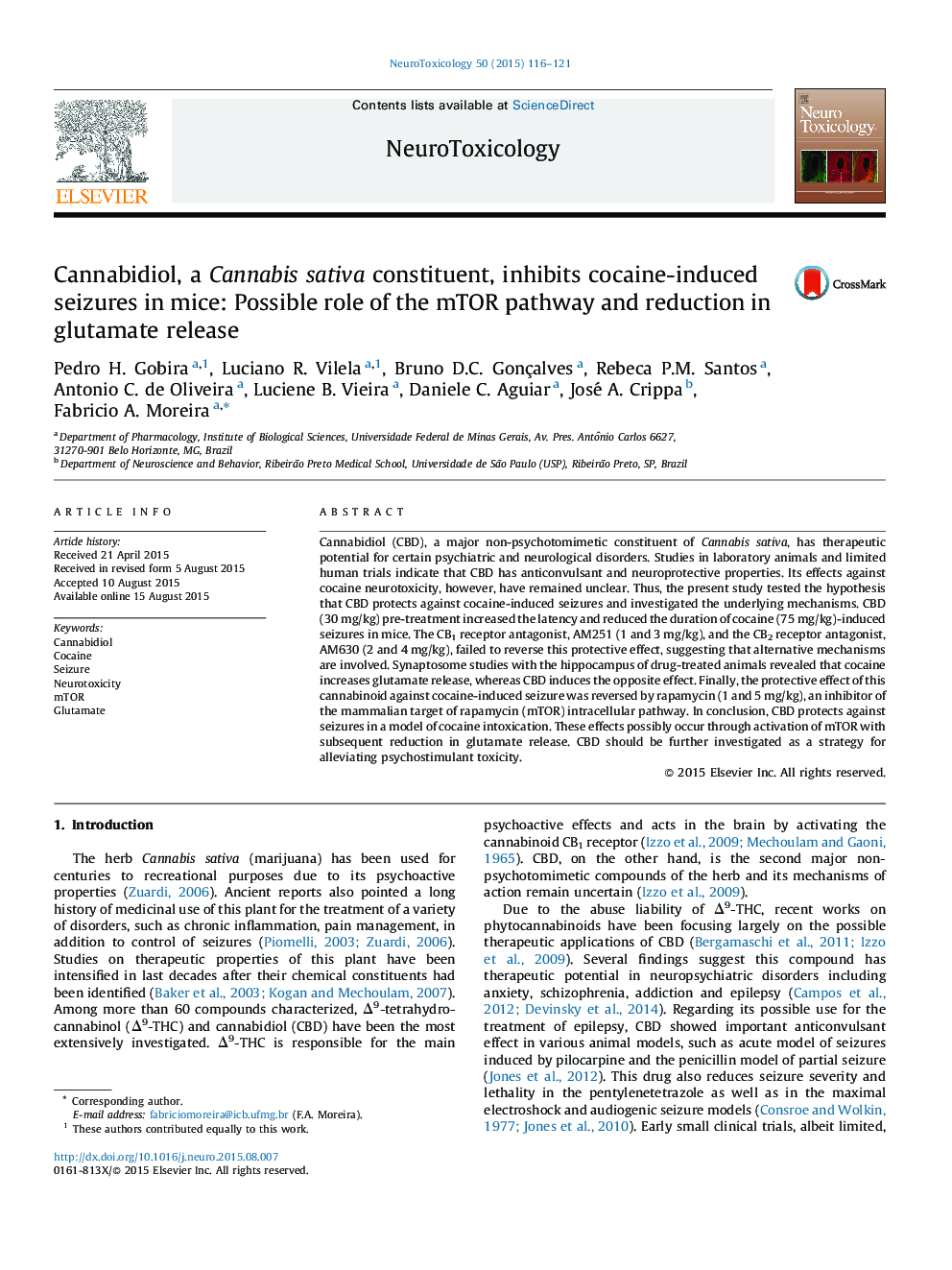| Article ID | Journal | Published Year | Pages | File Type |
|---|---|---|---|---|
| 2589499 | NeuroToxicology | 2015 | 6 Pages |
•Cannabidiol prevented cocaine-induced seizures in mice.•CB1 and CB2 antagonists failed to prevent cannabidiol effects.•Cocaine increases, whereas cannabidiol reduced glutamate release.•mTOR inhibition prevents cannabidiol effects.
Cannabidiol (CBD), a major non-psychotomimetic constituent of Cannabis sativa, has therapeutic potential for certain psychiatric and neurological disorders. Studies in laboratory animals and limited human trials indicate that CBD has anticonvulsant and neuroprotective properties. Its effects against cocaine neurotoxicity, however, have remained unclear. Thus, the present study tested the hypothesis that CBD protects against cocaine-induced seizures and investigated the underlying mechanisms. CBD (30 mg/kg) pre-treatment increased the latency and reduced the duration of cocaine (75 mg/kg)-induced seizures in mice. The CB1 receptor antagonist, AM251 (1 and 3 mg/kg), and the CB2 receptor antagonist, AM630 (2 and 4 mg/kg), failed to reverse this protective effect, suggesting that alternative mechanisms are involved. Synaptosome studies with the hippocampus of drug-treated animals revealed that cocaine increases glutamate release, whereas CBD induces the opposite effect. Finally, the protective effect of this cannabinoid against cocaine-induced seizure was reversed by rapamycin (1 and 5 mg/kg), an inhibitor of the mammalian target of rapamycin (mTOR) intracellular pathway. In conclusion, CBD protects against seizures in a model of cocaine intoxication. These effects possibly occur through activation of mTOR with subsequent reduction in glutamate release. CBD should be further investigated as a strategy for alleviating psychostimulant toxicity.
